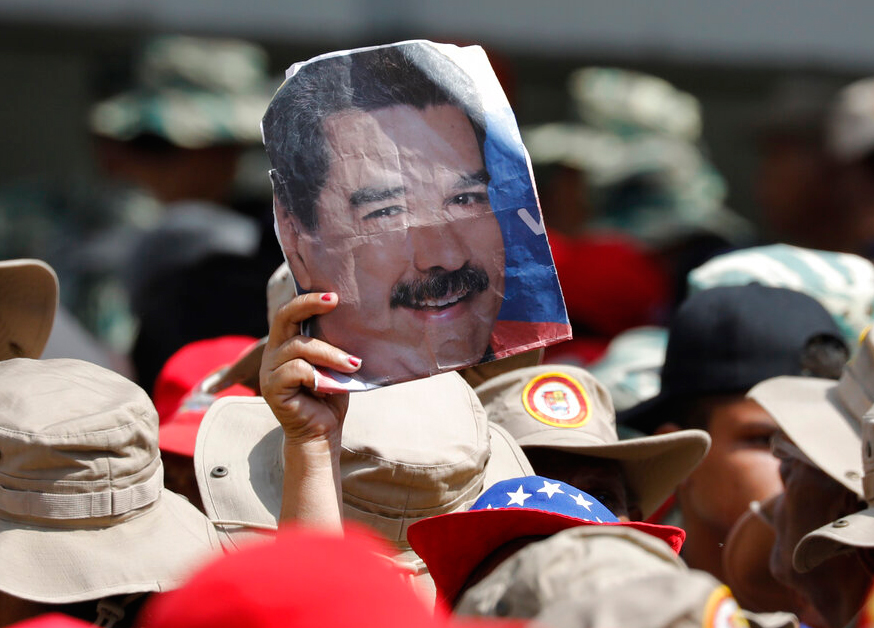The US is pressing India to stop buying oil from Venezuelan President Nicolas Maduro’s government, Washington's top envoy for Venezuela said, as the Trump administration this week threatened more US sanctions to cut off Maduro’s financial lifelines.
“We say you should not be helping this regime. You should be on the side of the Venezuelan people,” Elliott Abrams told Reuters in an interview.
The Trump administration has given the same message to other governments, Abrams said, and has made a similar argument to foreign banks and companies doing business with Maduro.
Abrams described the US approach as “arguing, cajoling, urging”.
The talks with India come as the US and its regional allies, who back Venezuelan Opposition leader Juan Guaido, threaten more sanctions to cut off revenue streams to Maduro’s government and force him to step down.
Washington views Guaido as Venezuela’s legitimate leader and has imposed sanctions on the country’s oil sector and announced asset freezes and visa bans targeting top government officials.
The Indian market is crucial for Venezuela’s economy because it has historically been the second-largest cash-paying customer for the Opec country’s crude, behind the US, which through sanctions against Maduro has handed control of much of that revenue to Guaido.
Washington wants India to do the same.
Oil shipments to China, another major importer of Venezuelan oil, do not generate cash because they go to pay off billions of dollars in loans made to Caracas by Beijing.
Any move by the US to prevent purchases of Venezuelan crude would be part of a strategy known as “secondary sanctions,” in which Washington applies penalties to companies not based in the United States.
That strategy, and even the threat of using it, was vital in Washington’s pressure campaign to cut off revenue to Iran, which eventually helped force Tehran to negotiate a nuclear deal with six world powers in 2015.
But it has drawn criticism from some foreign governments that argue that the US should not be able to force its policy decisions on firms in other countries.
US National Security Advisor John Bolton this week put foreign banks “on notice” that they risked US sanctions for hiding Venezuelan assets. “If that leads to people to cooperate voluntarily, we’re glad,” Abrams said.
Asked whether India had agreed to stop buying oil from Maduro’s government, Abrams said: “I don’t want to characterise the discussions, which continue.”
The issue will be discussed on Tuesday during US-India diplomatic consultations in Washington, an Indian official said, adding that India “was very cognizant of the US position” on Venezuela.
Abrams said there were no signs that Maduro is open to negotiations to end the political impasse with Guaido, emphasising that any talks would need to be reached among Venezuelans.
Manuel Quevedo, Venezuela’s oil minister, attended a conference in New Delhi in mid-February seeking to “double” the country’s crude exports to India while boosting Venezuelan imports of Indian refined products. He also said he was open to barter payments.
But Venezuela’s exports to India remained relatively stable in the month since the Trump administration slapped sanctions on Venezuela’s state-run oil company PDVSA, meaning shipments were not nearly enough to make up for the fall in US sales.










